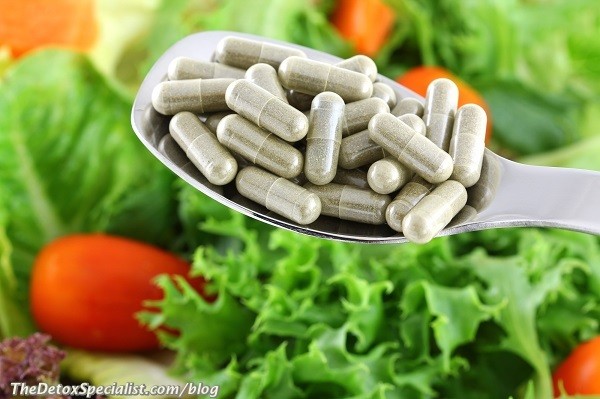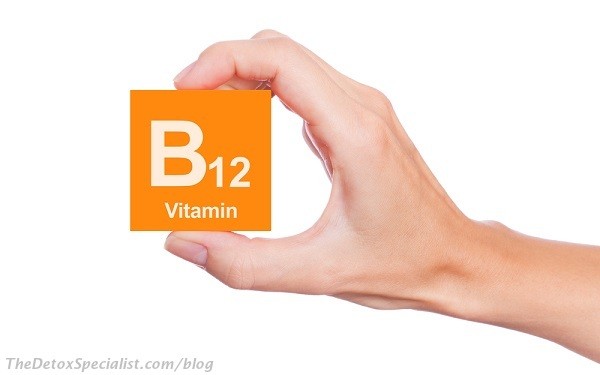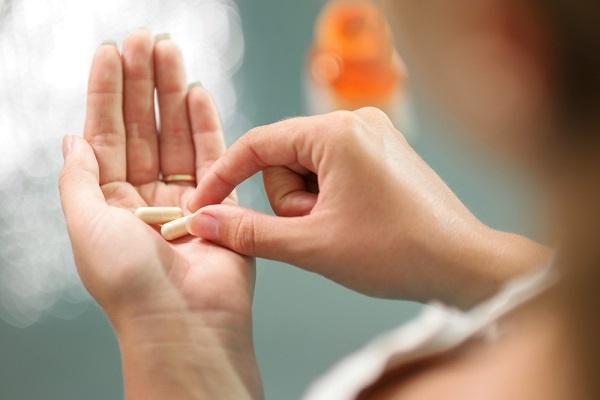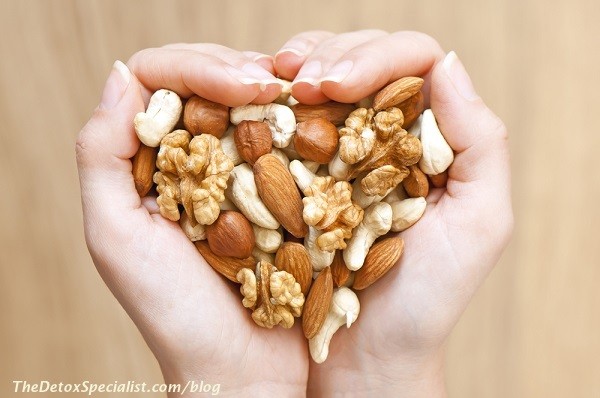
Without a doubt, there are numerous amazing benefits to eating a strictly plant-based diet. From improved heart health, lower cholesterol and reduced chances of developing type-2 diabetes to a decreased risk of cancer, it’s absolutely no surprise that so many people are choosing to go vegan. But while it’s richer in certain essential micronutrients, including vitamins A, E, C, magnesium, potassium, and folate, a strictly plant-based does open up space for some deficiencies as well.
Related reading: 5 Easy Vegan Recipes for Busy People
In truth, you’d be hard-pressed to find a vegetarian or vegan who hasn’t been warned about B12. But this doesn’t mean you should just stop by the drugstore and buy the first bottle of pills you see on the shelf.
If you’re going to be reaching for supplementation, it’s crucial that it’s planned with the same diligence and attention to detail as your everyday diet. Otherwise, you risk not only ingesting animal-sourced compounds, but also a number of synthetic ingredients your body may not even need in the first place.
So, if you want to know whether your supplements are 100% vegan, we recommend that you take a really close look at the label on your multivitamin, and audit each element to be sure you’re getting the absolute best there is.
1. Vitamin A

This fat-soluble micronutrient is found in a number of vegan, vegetarian, and animal-sourced foods. It’s crucial for immune health, vision, reproductive health, cell growth, and vital organ function.
What vegans need to know is that there are two forms of vitamin A you can get from supplementation:
- Preformed vitamin A is found in animal products and comes in the form of retinol.
- Provitamin A, the one you should look for on labels, is found in plants and comes in the form of carotenoids (beta-carotene being the most famous).
To ensure you’re getting a good amount of vitamin A through diet, include vegetables such as carrot, sweet potato, pumpkin, butternut squash, spinach, and broccoli in your diet.
2. Vitamin B Complex

This group of micronutrients consists of eight vitamins that play an important role in cell health, metabolism, brain function, digestion, and energy levels. People who are restricting meat and dairy from their diet need to pay special attention to B complex vitamins because they are often sourced from animal products.
- Thiamine, otherwise known as B1, can be derived from both plants and animals. When shopping, go for the former. Natural sources of thiamine include peas, nuts, soybeans, rice, and yeast.
- Riboflavin, or B2, also has both vegan and non-vegan sources. To ensure you’re getting the right kind, include almonds, soybeans, and wheat in your diet.
- Niacin, or B3, is also found both in meat and plants. Legumes (including peanuts) are the best plant-based source.
- Pantothenic acid, or B5, is mainly found in vegetables, but make sure you’re purchasing a vegan-certified product, as it can also be derived from poultry and dairy products.
- Pyridoxine is readily available in avocados, nuts, rice, potato, and seeds. It is also found in meat and poultry products.
- Biotin is found in mushrooms, bananas, nuts, and cauliflower, and it can still be derived from animals. Buy vegan-certified to be sure you’re getting the right source.
- Folate, or B9, is typically vegan, but keep in mind that it can also be sourced from animals. Naturally, it occurs in dark leafy greens, legumes, Brussels sprouts, peanuts, and fruits.
- B12 (cobalamin) is the most problematic type of vitamin B complex. Naturally, it comes from the microbiome in the dirt, but modern hygienic practices have made it almost impossible for humans to get it in their system without eating meat or consuming dairy. However, it is possible to get a vegan source, but look for certified products that source B12 directly from bacteria cultures. Also, know that it’s available through fortified foods such as breakfast cereals and plant-based milk.
3. Vitamin D
Although readily available in plants in the form of D2, a number of health authorities prefer the D3 (lanolin) form, which is sourced from animals. Yet, it’s important to note that the human body has its own way of producing vitamin D3 through sun exposure.

For those who don’t have enough opportunity to make vitamin D (whether due to geographical location, lifestyle choices, or genetic predisposition), it’s important to note that a D2 supplement can be just as efficient at promoting bone health, immune function, cancer prevention, and mental health management.
4. Vitamin K
Naturally occurring vitamin K can be found in leafy greens such as spinach and green salad, or broccoli and Brussels sprouts. Being a fat-soluble micronutrient, a portion of these eaten with some olive oil is enough to satisfy most people’s daily requirements. However, recent studies suggest that the K2 form (which doesn’t typically come from plants) may be the key to beating certain chronic conditions, as well as ensuring bone health.

K2 is readily available in meat. However, there is one vegan source that’s almost three times as rich in the nutrient, and that’s Japanese natto. You can get it from other fermented foods as well, such as sauerkraut, which can also contribute to the healthy gut microbiome.
5. Fillers and dyes

When you purchase a supplement, it’s important that you’re aware of the fact there are likely to be a number of substances other than what’s essential for your health. Those who know the exact vitamins and minerals their body needs more of can greatly benefit from making their own capsules as this gives them absolute control over dosage and ingredients. However, if you’re still leaning towards store-bought, avoid the following substances.
- Magnesium stearate – this is a filler (lubricant) compound generally used in tablets or on the outer shell of capsules. It can be sourced either from vegetables (cocoa and grains) or from animal-derived stearic acid. When shopping, read the label and choose the former.
- Carmine – a red dye sometimes utilized in cosmetics and medication, but can also be found in candy and juice. Considering the fact that it’s made from scale insects, it’s not considered ethical to consume it.
- Caprylic acid – another coating and filling agent, often derived from milk. It can be sourced from coconut or palm oil, so check the label for the source.
- Gelatin – the most common ingredient in softgel capsules, gelatin is made by boiling pork and beef tissues. You will want to avoid it and opt for one of the vegan alternatives.
6. Omega 3 and Omega 6 fatty acids

Various nuts in woman hands forming heart shape
Although they’re neither a vitamin nor a mineral, Omega fatty acids are generally considered to be an irreplaceable part of a healthy diet. And considering their numerous benefits, that’s no surprise. While Omega 6 is easily found in plant oils, nuts, and seeds, its inflammation and anxiety-reducing counterpart is much more difficult to get from sources that aren’t fish. Still, there is a way to ingest Omega 3s through consuming algae – green algae as a source of EPA, and red and brown as a source of DHA.
Final thoughts

Closeup of a dietary supplement label listing the vitamins contained within each tablet. Horizontal shot.
While giving your body a small daily boost in the form of a supplement is a great idea, it’s important that you’re aware of what these capsules contain. That’s especially true if your reason for going vegan is related to sensitivity or allergies.
Whenever possible, try to get your recommended daily dosage from nutrition and healthy lifestyle practices, and work with a trusted personal doctor who can steer you in the right direction towards wellbeing.
Images by depositphotos.com



